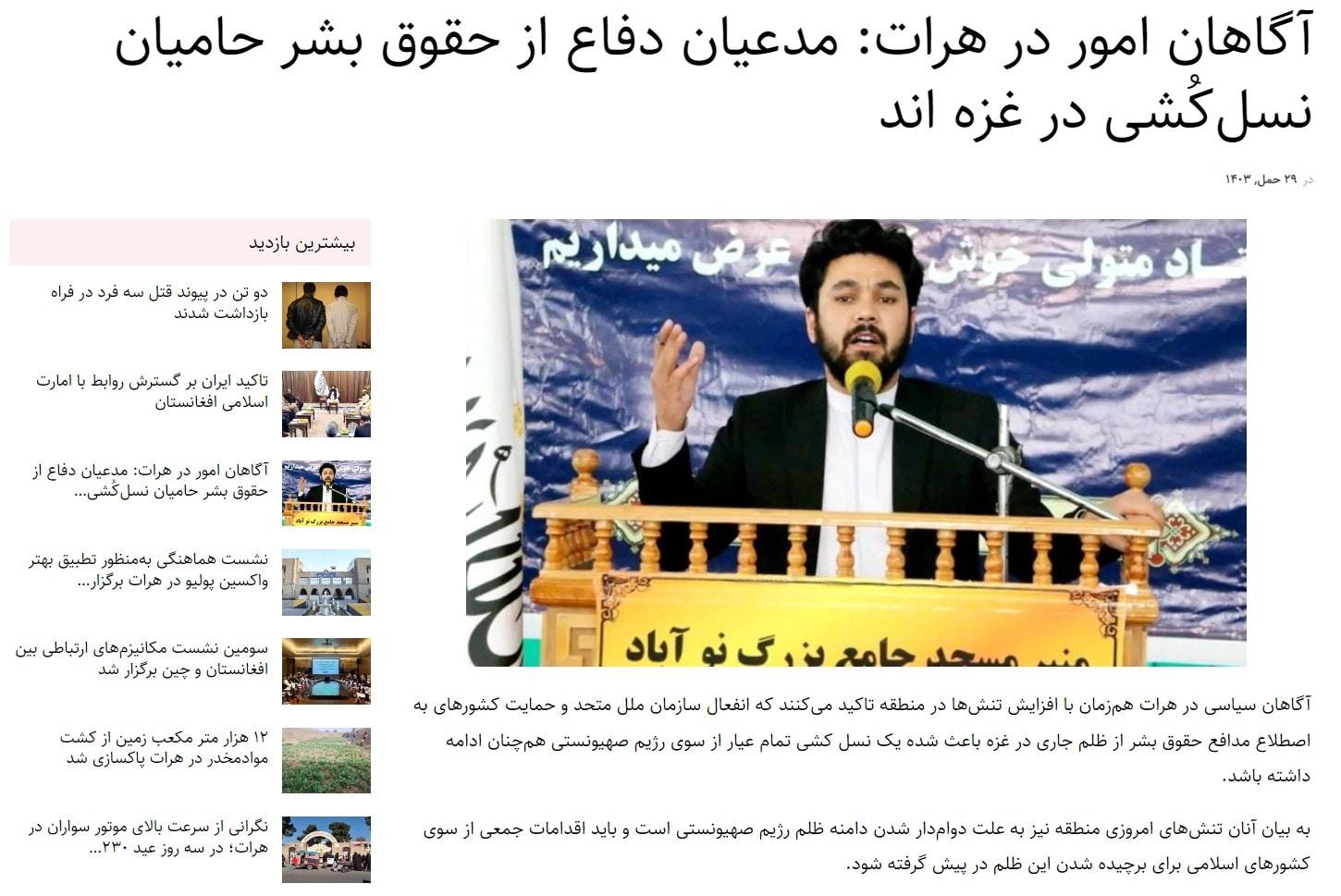In his December 13, 2020 column in the London-based Saudi daily Al-Sharq Al-Awsat, senior Lebanese journalist Hazem Saghiya defends the countries that recently normalized their relations with Israel. These countries, he says, have crucial existential concerns and national needs of their own, and they cannot be expected to sacrifice them for the sake of the Palestinian cause, "to which nobody ascribes much importance any longer." He stressed that, although everyone recognizes the Palestinians' right to an independent state, their cause is no longer consistent with the national interests of other Arab states, and sometimes even contravenes these interests. He adds that over the years, the gap - and even conflict - between the Palestinian and Arab interests gradually increased, while the number of countries engaged in war with Israel steadily declined. At the same time, various elements in the Arab world, such as Iran and Syria, as well as Islamists, leftists and pan-Arab nationalists, exploited the Palestinian cause for their own ends, brandishing bombastic slogans about Arab unity and defeating the West, which only served to render the Palestinian issue unsolvable. Nostalgia for these slogans will not bring the Palestinians any achievements, he warns.

Hazem Saghiya (Source: Hafryat.com)
The following are excerpts from his article.[1]
"The reactions condemning the recent Arab moves of normalizing relations with Israel [all] omitted and disregarded one specific point, which had been [extensively] discussed [in other contexts], namely the vital needs of the normalizing countries. Few noted the fact that these countries and their peoples have problems of their own, [including] the danger posed by Iran and its expansionist tendencies; Morocco's [wish] to restore what it regards as its territorial integrity, and the removal of Sudan from the terror list, with all the economic implications this can have. These issues are by no means trivial. Even Lebanon, which has not normalized [its relations with Israel, held] direct negotiations with the Israelis on delineating the border [between the two countries], and explained this by noting the need to produce its own oil.
"As long as the 'Arabs' comprise [different] countries and societies, with [different] interests, it will be difficult to disregard these issues and concerns and claim that normalization is merely the will of some ruling elite, or expect [the Arabs] to sacrifice [their interests] out of loyalty to their 'national duty' [of supporting the Palestinians, a duty] to which nobody ascribes much importance any longer.
"Some opponents of normalization claim that the [Arab] regimes can easily suppress [the will of their] peoples [and force them to accept the normalization]. But what they say when the regimes that most loudly trumpet their hostility towards Israel and their opposition to normalization are [actually] the ones that oppress their peoples the most and inflict the greatest harm on the Palestinians?...
SUPPORT OUR WORK

"The Palestinians' bitterness is certainly understandable, since the settlements, the constant erosion of their territory and the waning of the two-state solution continue to stifle their undeniable rights. What makes this bitterness even greater, and adds to it a sense of deception, is that the Arabs once brandished so many slogans like '[Palestine] is the Arabs' foremost cause,' '[Palestine] is our central cause', '[Palestine] is our compass,' and 'our position towards countries of the world depends on their position on the Palestinian issue,' etc. [Moreover], everyone who heard these slogans either believed them or pretended to believe them…
"In discussing countries and policies… [it is important to note] that the Palestinian issue is no longer consistent with the national concerns of the other Arab countries, and no longer carries a promise of liberation for anyone or an improvement of anyone's economic situation. The constant calls for resistance and confrontation, [which are still being heard] on the margins of the [Palestinian] cause, have lost all their appeal for the Arabs, and probably even for the Palestinians themselves.
"This disconnect between the [Palestinian] cause and the affairs of the [Arab] countries has become a catastrophe for everyone, and the Palestinians' actions are partly responsible for this, for their cause no longer matches either the interests of the [Arab] countries and peoples or their fears. In fact, it exacerbates these fears. Think about it: movements like Hamas and Islamic Jihad have a pact with Iran, [a country] that much of the Arab world fears. These two [organizations] are repeating the PLO's [mistake] of supporting Saddam Hussein's 1990 invasion of Kuwait, but on a much greater scale.
"Today, the relations between the Israelis and Palestinians have very little impact on the rest of the Arab world. More precisely, as the bluster over the [Palestinian] cause became larger than [the cause] itself, it became easier for everyone to appropriate [this cause] and make use of it. This allowed Bashar Al-Assad to exploit it as he did, and enabled Iran to [purport to] represent it and lead it…
"This issue has a history. After [what happened] in Jordan in 1969 and in Lebanon in 1970, it became clear that the interests and aspirations of [the Palestinians] could diverge from [those of other Arabs] to an extent that cannot bridged by [pan-Arab] national slogans. This schism increased further [as several developments unfolded]: the Camp David [peace] agreement [between Egypt and Israel], which did not spark any mass uprising in Egypt, followed by the war for the liberation of Kuwait [i.e., the 1990 Gulf War], and finally the Arab [Spring] revolutions, which highlighted many national issues that detracted from the centrality of the Palestinian cause, on the verbal level…
"At the same time, the number of countries fighting [Israel] was steadily falling: in 1948 there were seven [countries], in 1967 there were three, in 1973 there were two and in 1982 there was only one - after which the wars were [merely] local struggles in Lebanon and Gaza.
"This [objective] view [of the Palestinian issue] steadily gained traction, despite the definite tendency to inflate this issue to the extent that it becomes unsolvable: the Islamists associated it with the Crusader war, the leftists associated it with imperialism and its expansion in the world, and the nationalists associated it with the tearing apart of the 'Arab homeland.' [This meant that] the solution could only be achieved by defeating the Westerners, namely 'the modern Crusaders,' or else as part of a global socialist revolution or a move towards [pan-]Arab unity.
"But these slogans sank one by one, like leaking ships that could not reach any harbor... Since Israel was militarily more powerful [than the Arabs], it was the only party that benefited from this inflation [of the Palestinian issue], using it to reinforce the occupation and its erosion of the [Palestinian] land.
"All this is very saddening, as a nostalgic sort of way. But adopting nostalgia as a way of life does not necessarily bring results to those who do so."
[1] Al-Sharq Al-Awsat (London), December 13, 2020.




